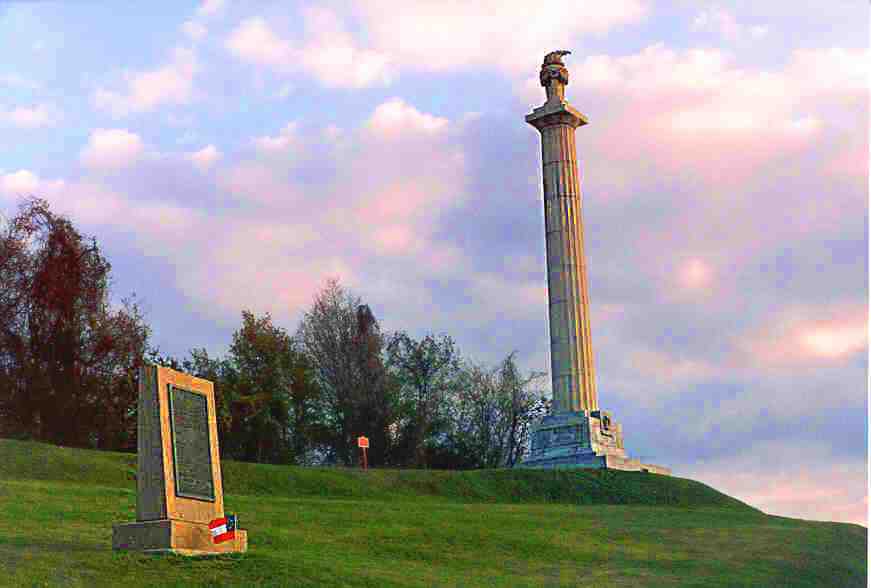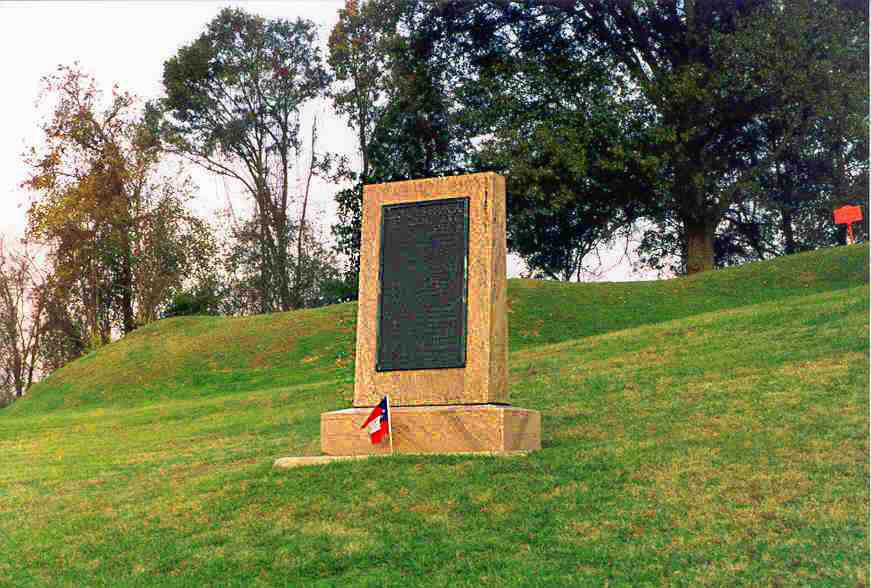|
The 12th
Louisiana Infantry Copyright registered with the Library of Congress. This material may not be copied or used for any purpose without the express written permission of the author. |
|
|
The 12th
Louisiana Infantry Copyright registered with the Library of Congress. This material may not be copied or used for any purpose without the express written permission of the author. |
|
|
|
Unit
History Page |
 |
 |
|
The Battle of Champion Hill, known to the Confederates as the Battle of Baker’s Creek, took place near Edward’s Depot on the Southern Railroad, about 25 miles east of Vicksburg. It was the critical engagement outside the defenses of Vicksburg between the Federal army of Major General Ulysses S. Grant and a Confederate army under Lieutenant General John C. Pemberton in Grant’s successful final campaign to capture the Gibraltar of the Confederacy. This battle and its aftermath had a far greater impact on the future capability of the 12th Louisiana Infantry than is suggested by the marker in the Park. When the regiment was mustered and paid on May 1, 1863 at Jackson, Mississippi, Colonel Thomas M. Scott had one of the largest regiments in General Pemberton’s Department of Mississippi and Eastern Louisiana. Never again would so many be present for duty. The 12th Louisiana Infantry was a volunteer regiment formed for Confederate service at Camp Moore, Louisiana in the summer of 1861. These first volunteers, plus later replacements who enrolled in the 12th Louisiana throughout the war, came from communities in the present day Louisiana parishes of Bienville, Caldwell, Claiborne, DeSoto, Grant, Jackson, Lincoln, Morehouse, Natchitoches, Red River, Sabine, Union, Webster, and Winn. Although the number present for duty never exceeded 1,200 men, at least 1,735 men can be found in the surviving records who served with the regiment between 1861 and 1865. Constant recruiting to replace losses incurred by disease, disability, and desertion plus the addition of three full companies in 1862 kept the regiment at nearly full strength. There were 977 men present for duty in Colonel Scott’s command at Jackson on May 1, 1863. Two months later when the regiment was mustered at Canton, Mississippi, the numbers were reduced to 659 soldiers still present for duty. The command was missing 318 men, more than double the number reported in the Natchez Courier as casualties of the fighting on May 16th. In addition to the 5 killed and 34 wounded at Champion Hill, a total of 279 men were absent from the regiment. Federal records and northern newspapers reported the capture of 4,400 Confederate enlisted men and officers primarily from the battles of Champion Hill on May 16th and Big Black Bridge the next day. Gathered at Haynes Bluff north of Vicksburg on the Yazoo River, they were soon transferred by steamboat and railroad to prison camps in Indiana, Ohio, and Delaware. Included among these prisoners of war were 72 enlisted men from the 12th Louisiana. Many of the men named in the Natchez Courier report as missing were among this group of prisoners. A total of 204 men from the regiment were accounted for inside the Vicksburg garrison during the siege. Fifteen of the wounded and 63 of the missing in action from Baker’s Creek were swept into the garrison. The remainder were men who had been absent prior to May 16th due to illness, or away on various ordnance and supply details. About 160 of the able bodied men were placed under the command of Captain John A. Dixon, the senior officer from the regiment present, and thereafter identified in the records as "a detachment of the 12th Louisiana." The main body of the 12th Louisiana, led by Colonel Scott who was obeying orders from Brigadier General Abram Buford, withdrew from the battlefield on the night of May 16th and followed the rest of Major General William W. Loring’s Division in a 35 mile forced march to Crystal Springs, Mississippi on the New Orleans, Jackson & Great Northern Railroad. Loring’s Division quickly reported to General Joseph E. Johnston who was collecting additional troops at Jackson hoping ultimately to relieve the siege of Vicksburg. Morale among the soldiers in Johnston’s army dropped sharply after the surrender of Vicksburg on July 4th and Port Hudson on July 9th. When ordered to retreat from Jackson on the night of July 16th, a large contingent from the 12th Louisiana deserted and went home to Louisiana. Illness and temporary hospitalization during June and July 1863 took an additional heavy toll. Of the 659 men who marched away from Baker’s Creek to Crystal Springs, only 504 were present for duty when the regiment reached Morton Station, Mississippi in late July at the end of the retreat from Jackson. The nearly 50% reduction in strength which the 1863 Vicksburg Campaign and its aftermath imposed on the regiment would be permanent. Only ten of the 72 prisoners of war sent off to Fort Delaware would return to duty following their escape or exchange. Out of 191 survivors paroled and released at Vicksburg, only 29 rejoined the regiment following their exchange in late 1864. While many of the sick eventually recovered and returned, the continuing attrition due to poor health and declining morale offset any gains. Nine months later, the regiment took 499 men into action at Resaca in northwest Georgia on May 10, 1864. A truly heroic effort requiring determination, courage, and personal sacrifice was made by the men of the 12th Louisiana Infantry during the last full year of the war. Combat casualties became a significant factor in reducing regimental manpower. Between May 10th and September 5th while serving with the Confederate Army of Tennessee under Generals Joseph E. Johnston and John Bell Hood, the 12th Louisiana was in nearly daily contact with elements of the Federal army under Major General William T. Sherman. Battle casualties totaled 106 men: 32 killed or mortally wounded, 65 seriously wounded who required hospitalization, and 9 men captured. Many others were "slightly wounded" but able to remain on duty with their companies. Disease and exhaustion from combat fatigue forced the long term hospitalization of another 63 men. By September 1864, the number of men present for duty dropped below 360. The 12th Louisiana crossed the Tennessee River at Florence, Alabama in November 1864 and marched into Tennessee with 350 men. Two months later at the close of Hood’s disastrous Tennessee campaign, they straggled into camp at Tupelo, Mississippi with only 175 men. The regiment made a headlong assault across an open field against prepared defenses well covered by artillery on the afternoon of November 30, 1864 at Franklin, Tennessee. They suffered 59 men killed and wounded including Colonel Noel L. Nelson and Major Henry V. McCain. Under the leadership of Captain James T. Davis, the senior company commander present, the survivors marched on to Nashville. During the second day’s fighting at Nashville, the Confederate line was outflanked and collapsed in a complete rout. Survivors of the 12th Louisiana claimed to have been "the last one [regiment] of our Division that left its position" defending the stone wall near the Granny White Pike. The price of this honor was 78 men killed, wounded, captured, and missing. Combined Franklin and Nashville losses were: 16 dead, 50 wounded, 54 captured, and 42 missing. Boosted by Trans-Mississippi returnees, and by men who had recovered from wounds and illness incurred during the 1864 campaigns, nearly 233 men were available for infantry duty in late January 1865. Transferred to North Carolina, the regiment participated in the last infantry charge of the war made by the Confederate army gathered under General Joseph E. Johnston at Bentonville on March 19th. Documented casualties were 4 killed, 11 wounded, and 1 captured. The regiment was surrendered and paroled at Greensboro, North Carolina under the terms and conditions of an agreement reached between Generals Johnston and Sherman on April 26, 1865 at Durham Station. A grand total of 305 men, including soldiers away from the regiment on military details and men on authorized absences outside of North Carolina, were accounted for on May 1, 1865. The history of this regiment may have been glossed over by the fact that it was never brigaded with other Louisiana regiments after being withdrawn from Columbus, Kentucky in early 1862. Confederate President Jefferson Davis promoted the idea early in the war of putting regiments from the same state together whenever possible in the belief that it would improve morale. Detached to provide infantry support to the Fort Pillow garrison in March 1862, the 12th Louisiana was not included in the Army of Tennessee’s Louisiana brigade formed in the summer of 1862. Serving with various regiments from Alabama, Kentucky, and Mississippi, they were placed successively in brigades commanded by Brigadier Generals John B. Villepigue, Albert Rust, Abram Buford, and their own Thomas M. Scott. An able citizen soldier with no prior military experience, Colonel Thomas M. Scott of the 12th Louisiana was given command of a brigade in the spring of 1864 composed of the 12th Louisiana and the 27th, 35th, 49th, 55th, and 57th Alabama Infantry regiments. He was formally promoted to brigadier general in the summer of 1864 with rank dating from May 10, 1864. Northern Louisiana was a relatively unsettled farming frontier in 1860 with many families having just arrived from states east of the Mississippi. Scott, a resident and land owner in Claiborne Parish at the beginning of the war, was a native of Georgia. The comfortable inclusion of the 12th Louisiana with all of the Alabama regiments in Scott’s Brigade may have reflected the fact that a great many of these Louisiana volunteers had extended family living in Alabama. Their status as a forgotten regiment may also stem from the fact that every engagement in which they participated, save Kennesaw Mountain in Georgia, was viewed as a Confederate defeat in spite of their own determined and sometimes heroic efforts. Few memoirs were published in the post-war period telling the story of the 12th Louisiana, and the contribution of this volunteer regiment to the Confederate war effort in the western theater has been largely forgotten. The stamina, courage, and dedication of these young volunteer soldiers was remarkable. They deserve more recognition than an obscure marker at Vicksburg National Military Park! It's time we remembered! |
|
Hit keyboard "Control Home" to return to top of this page. | Then click on images to go to other pages or send E-Mail. |
LSU Class of 1965. Geaux Tigers!! |